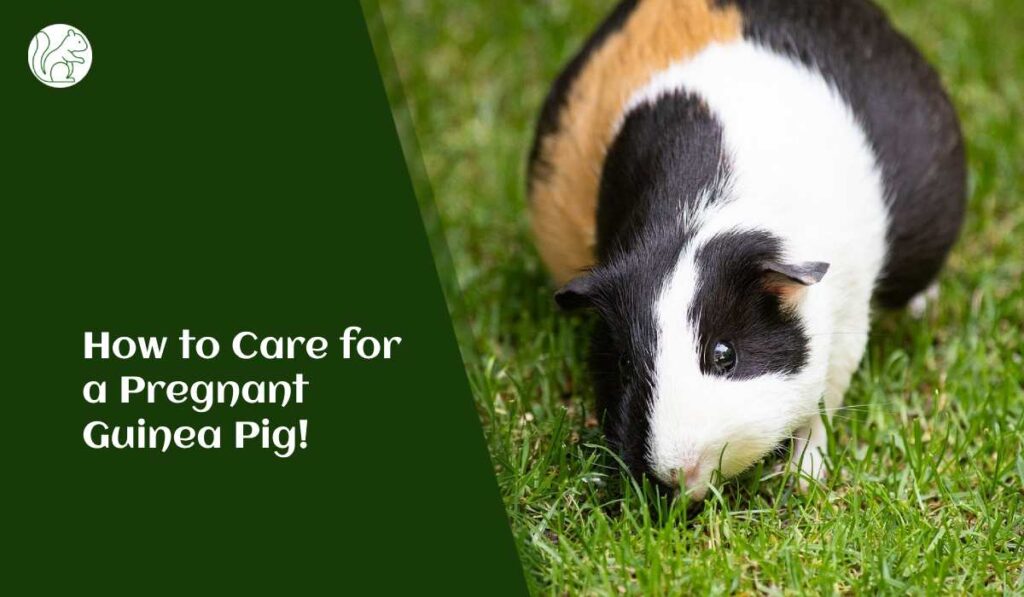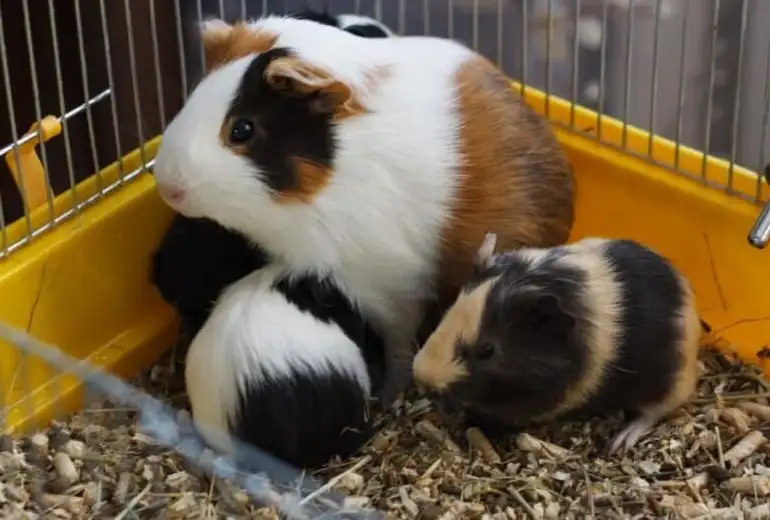Congratulations! You have a pregnant guinea pig, and it’s an exciting time for you and your furry friend. As a responsible pet owner, it’s essential to provide the best care for your pregnant guinea pig to ensure a healthy and stress-free pregnancy. In this comprehensive guide, we’ll cover everything you need to know about how to care for a pregnant Guinea Pig, from nutrition and housing to general well-being.

Recognizing Pregnancy in Guinea Pigs
Before you start caring for a pregnant guinea pig, it’s crucial to confirm the pregnancy. Pregnancy in guinea pigs typically lasts between 59 to 72 days. Signs of pregnancy include weight gain, an enlarged abdomen, and increased appetite. However, it’s always best to consult a veterinarian to confirm the pregnancy and get professional advice.
Creating a Comfortable and Safe Environment
During pregnancy, guinea pigs require a safe and comfortable environment. Provide a spacious cage with appropriate bedding, such as hay or shredded paper, to create a cozy nesting area. Ensure that the cage is kept in a quiet area, away from loud noises and excessive foot traffic.
Balanced Nutrition for the Mother
Proper nutrition is crucial for a pregnant guinea pig’s health and the well-being of her pups. A balanced diet should include high-quality guinea pig pellets rich in Vitamin C, hay for roughage, and fresh vegetables like carrots, bell peppers, and leafy greens. Always ensure access to fresh, clean water to keep them hydrated.
Monitoring Weight and Health
Regularly monitor the pregnant guinea pig’s weight to ensure she’s gaining appropriately. Sudden weight loss or lack of weight gain could indicate health issues and requires immediate veterinary attention. Observe her behavior, looking for any signs of distress, lethargy, or abnormal discharge.
Social Interaction and Handling
Pregnant guinea pigs need social interaction, but it’s essential to handle them with care. Avoid excessive picking up or stress-inducing situations. Instead, opt for gentle interactions and spend time near the cage to let them become familiar with your presence.
Preparing for Birth
As the due date approaches, create a suitable birthing area within the cage. Offer extra nesting materials, such as hay and shredded paper, for the mother to build a comfortable nest. Monitor her closely, as some guinea pigs may need assistance during labor.
Handling Newborn Pups
When the pups arrive, avoid handling them excessively during the first few days. Allow the mother to care for them and bond. Provide a separate area in the cage for the mother and pups to give them privacy and minimize disturbances.

Postnatal Care
After birth, continue providing the mother with a nutritious diet to support her lactation. Keep the cage clean and change bedding regularly to maintain a hygienic environment for the new family.
Health Check-ups
Schedule a postnatal check-up with a veterinarian to ensure the well-being of both the mother and her pups. The vet can assess their health, offer advice on caring for the pups, and answer any questions you may have.
Weaning and Separation
Around three weeks of age, the pups will start nibbling on solid food. This is an indication that they are ready to be weaned. Gradually introduce them to solid guinea pig pellets while still providing access to their mother’s milk. Around four weeks, the pups can be gently separated from the mother to avoid any potential conflicts.
Conclusion
Caring for a pregnant guinea pig is an enriching experience that requires attention, dedication, and love. By providing a safe and comfortable environment, a balanced diet, and regular veterinary care, you can ensure a smooth and healthy pregnancy for your furry companion. Remember to handle both the mother and pups with care and enjoy the journey of witnessing new life entering the world.
Always remember, if you have any concerns or questions about caring for your pregnant guinea pig, consult with a qualified veterinarian for professional advice. Happy guinea pig parenting!
